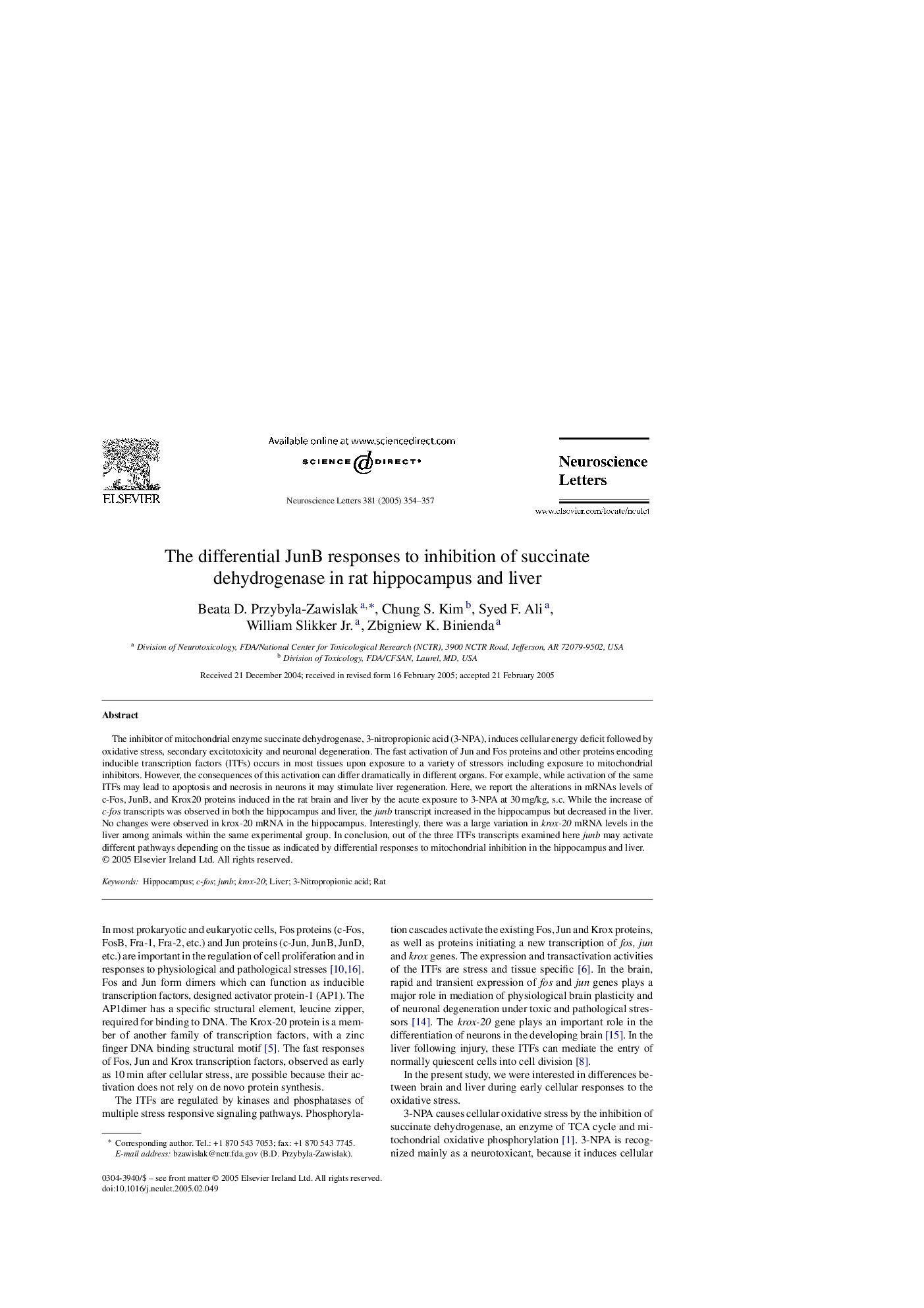| Article ID | Journal | Published Year | Pages | File Type |
|---|---|---|---|---|
| 9429628 | Neuroscience Letters | 2005 | 4 Pages |
Abstract
The inhibitor of mitochondrial enzyme succinate dehydrogenase, 3-nitropropionic acid (3-NPA), induces cellular energy deficit followed by oxidative stress, secondary excitotoxicity and neuronal degeneration. The fast activation of Jun and Fos proteins and other proteins encoding inducible transcription factors (ITFs) occurs in most tissues upon exposure to a variety of stressors including exposure to mitochondrial inhibitors. However, the consequences of this activation can differ dramatically in different organs. For example, while activation of the same ITFs may lead to apoptosis and necrosis in neurons it may stimulate liver regeneration. Here, we report the alterations in mRNAs levels of c-Fos, JunB, and Krox20 proteins induced in the rat brain and liver by the acute exposure to 3-NPA at 30Â mg/kg, s.c. While the increase of c-fos transcripts was observed in both the hippocampus and liver, the junb transcript increased in the hippocampus but decreased in the liver. No changes were observed in krox-20 mRNA in the hippocampus. Interestingly, there was a large variation in krox-20 mRNA levels in the liver among animals within the same experimental group. In conclusion, out of the three ITFs transcripts examined here junb may activate different pathways depending on the tissue as indicated by differential responses to mitochondrial inhibition in the hippocampus and liver.
Related Topics
Life Sciences
Neuroscience
Neuroscience (General)
Authors
Beata D. Przybyla-Zawislak, Chung S. Kim, Syed F. Ali, William Jr., Zbigniew K. Binienda,
